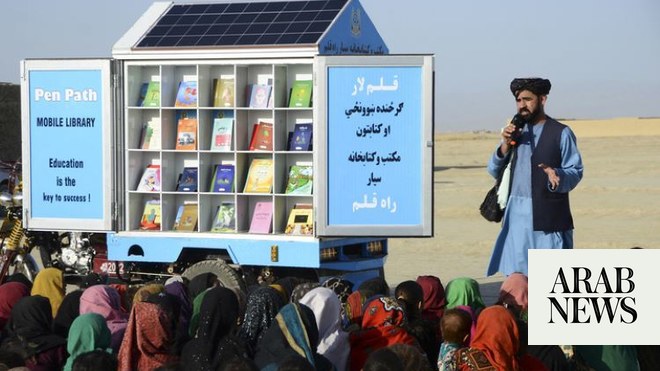
Earlier this week, girls across Afghanistan arrived for lessons on the day secondary schools were due to open for them for the first time since the Taliban seized power. They were told to go home, and informed schools would remain shut indefinitely.
As international outrage grew at the U-turn, the official Taliban response was confused and contradictory. The group blamed a lack of teachers on the closures and said they first needed to create an appropriate environment for girls to study, and decide on appropriate uniforms.
A statement issued by the Taliban’s education ministry then said school openings would be postponed “until further notice when a comprehensive plan, in accordance with Sharia and Afghan culture, is developed”.
Experts say that the decision to close education to girls over 11 is nothing to do with uniforms. Instead, it is a sign of deep divisions within the group about the future direction of rule in Afghanistan.
Heather Barr, associate director of the women’s rights division at Human Rights Watch, said: “The uniforms are already very conservative and the schools are already segregated by gender. They had seven months to decide what type of scarves girls should wear on their heads and even those seven months weren’t enough. This isn’t a credible excuse.”
“They don’t want to actually come out and admit they don’t want girls to go to school,” she said, adding that the Taliban made similar prohibitions on education and work during their rule in the 1990s.
The decision to keep schools closed was announced by Umar Jalal, a director at Afghanistan’s Academy of Sciences, instead of the Taliban spokesperson Zabihullah Mujahid. It is believed to have been made during a three-day cabinet meeting held in the southern Kandahar province and has caused uproar and surprise even in Taliban circles.
Harun Najafizada, director at Afghanistan International Television, said: “The Taliban’s older generation – represented by the group’s religious leader Hibatullah Akhundzada and acting prime minister Hasan Akhund – is ideologically opposed to sending girls to school. They can’t take it: they see it as immoral and not in line with local culture.” He added that a source close to the group’s leadership had allegedly heard Akhund saying he did not want to see girls attending school in his native Kandahar province for as long as he was alive – but seemed to not have extended that statement to other provinces such as Kabul, Bamyan or Herat.
While the Taliban is an ethnic Pashtun-majority movement, Afghanistan, with almost 40 million people, is home to a variety of ethnicities, backgrounds and opinions.
“The excuse over uniform is a very last-minute attempt [to hide internal disagreements],” said Pashtana Durrani, education activist and founder of NGO Learn Afghanistan. “They are grasping at branches as they are drowning in their own lies. Do they need a fashion designer to help them decide the colour and design for trouser and shirt?” Learn Afghanistan has been operating private as well as secret schools across seven provinces.
The decision to turn girls away from classrooms came only a week after the education ministry announced that schools would open for all students.
Abdul Salam Zaeef, one of the group’s founding members and long-term Taliban diplomat, criticised the ban. He said: “We must keep our dignity”, adding girls should return to school “as soon as possible”.
Other leaders – allegedly a majority of the Haqqani network as well as deputy prime minister Abdul Ghani Baradar, one of the movement’s founders who has long opted for international diplomacy – had voiced support for all girls to return to school. “But they don’t have the power to challenge the older generation or they fear even more conflicts within the group,” Najafizada said.
The Taliban said any idea that the decision not to reopen schools was due to internal disputes was “far from the truth”.
Deputy spokesperson Inamullah Samangani said: “You will soon see the gates of schools open to girls. The plan that the Islamic Emirate was working on is almost finalised and will be implemented soon. There is no dispute about girls going to school, but the Islamic Emirate wants to provide a safer environment for girls.”
Teenage girls previously interviewed by the Guardian said they had been excited to return to class and were shocked at this week’s U-turn.
“This is all I prayed for the last few months, to be able to go back to school again and continue my education to achieve my dreams,” said 15-year-old Sara from Kabul.
The ban was announced at night, meaning most girls only found out after they turned up for class, causing widespread confusion. The UN had previously agreed to pay teachers’ salaries.
“This is clearly showing the Taliban’s misogyny and demagoguery,” said Ali Mohammad Ali, former Afghan national security council official and researcher.
“We’ve seen over the years that economic hardship, insecurity and conflicts decrease in areas that have higher levels of girls’ education,” he said. “Of course, the Taliban will continue to negotiate, but they will face backlash. They have lost even more credibility. The world won’t buy it.”












